Boots on the border
The borderlands are a military zone now … Public pans Project Blue … And bumper stickers don’t win elections.
A smirk flitted across former Gov. Doug Ducey’s face when a reporter asked him if he was militarizing the border.
It was back in 2018 and Ducey was standing in front of the Border Patrol station in Nogales, all set to answer questions about his decision to deploy the Arizona National Guard to the border.
Reporters had descended on Nogales that day seven years ago, including Curt, who was a reporter for the Arizona Daily Star back then (and a reporter for the Nogales International before that). Here’s what he wrote at the time:
It was one of those moments where “both of these things can’t be true.” How could the border not be militarized if National Guard troops were stationed there?
But Ducey stuck to his guns and downplayed any talk of militarization. Back then, the GOP party line was to avoid actually saying they were trying to militarize the border, and most reporters didn’t really push back.
Looking back from 2025, the unspoken conventional wisdom seems to have fallen somewhere along the lines of “Don’t overreact, it’s just political theater.”
When progressive activists tried to sound the alarm, you could almost hear a nationwide, collective eye roll.
Now, the political landscape has shifted so much since Ducey stood in front of the Border Patrol station that “militarizing the border” isn’t just a liberal critique of conservative border policies: It’s the explicit goal of the Trump administration.
And that raises all kinds of issues southern Arizonans should keep an eye on.
Not beating around the bush
The military’s presence at the border has grown rapidly over the past few months.
President Donald Trump kicked it off with an executive order in April, saying he assigned the military the mission of “repelling the invasion and sealing the United States southern border from unlawful entry to maintain the sovereignty, territorial integrity, and security of the United States.”
Soon after, the Trump administration transferred control of a 60-foot-wide strip of land that runs alongside the U.S.-Mexico border to the Department of Defense.
Then, the Trump administration converted the New Mexico-Mexico border strip into a military installation, with headquarters at Fort Huachuca.
Earlier this month, the Trump administration announced they’re turning the strip along 140 miles of border Yuma into a military installation overseen by the Marine Corps Air Station Yuma.
If the Trump administration continues on its current path, they’ll likely do the same to the border in Nogales and Cochise County soon.
For now, the Nogales area isn’t quite a military zone, but it still has soldiers driving armored vehicles along the border there. Those soldiers are part of a borderwide military force that has grown over the past few months to include 7,600 soldiers, 117 armored vehicles, 35 helicopters and a half-dozen long-distance surveillance drones, the Associated Press reported last week.
Beyond the bases
Converting the borderlands into a military base isn’t just about boosting the military presence.
It allows migrants to be arrested for trespassing on a military base, which is a more straightforward criminal prosecution than crossing the border illegally, let alone dealing with asylum claims (although federal prosecutors still struggled with those trespassing cases).
It’s also the Trump administration’s gambit to get around the Posse Comitatus Act, which generally bars the military from acting as civilian law enforcement.
“It’s in that gray area, it may be a violation — it may not be. The military’s always had the authority to arrest people and detain them on military bases,” Joshua Kastenberg, a professor at the University of New Mexico School of Law and a former Air Force judge, told the AP.
Besides the creation of the new bases, U.S. troops now have the freedom to roam the borderlands, which was more than the National Guard could have done during previous deployments, when they mostly did support work, like monitor cameras or paperwork, or stationary surveillance on hilltops.
Meanwhile, the propaganda machine has shifted into high gear.
The U.S. military’s Northern Command and Joint Task Force Southern Border launched a social media campaign to show they’re on the job. It has become a daily deluge of images showing men and women in fatigues at the border using surveillance drones and eight-wheeled armored Stryker vehicles.
The irony of the situation is the wave of militarization is coming as Arizona’s border has grown quieter than at any time in recent memory, which prompted an Army sergeant to tell the AP last week that “deterrence is actually boring.”
As we noted back in March in the Arizona Agenda, encounters with migrants in the Border Patrol’s Tucson Sector have plummeted since a peak of about 80,000 in December 2023.
Last month, for example, the Border Patrol reported just 968 encounters with migrants in the Tucson Sector.
That’s an entire month along roughly 260 miles of border, staffed by 3,700 Border Patrol agents (and now the military).
Think about that for a second. At this rate, the average agent in the Tucson Sector would encounter three migrants during the course of a whole year.
Besides the practicalities and legalities of militarizing the border, there’s a tragic incident lurking in the background that officials probably don’t want to repeat.
When the U.S. military was deployed to the border in the 1990s, the mission came to a screeching halt after U.S. Marines shot and killed Esequiel Hernandez, Jr., an 18-year-old U.S. citizen who was herding goats in western Texas.
“Don’t take people who are trained to kill and put them to do a mission on border security, because you’re asking for trouble,” the lawyer for the Hernandez family told the New York Times. “They’re just not trained for civilian interaction.”
If you plan to vote in next week’s Tucson City Council primary election, you might want to double check that mail-in ballot now.
Roughly 1,300 voters are in for an unpleasant surprise: The Pima County Recorder’s Office sent them a ballot for the wrong political party.
The Recorder’s Office acknowledged the issue in a Friday news release.
Recorder Gabriella Cázares-Kelly said that it stemmed from a mechanism in her office’s data system that “prevents party changes during an active election.”
The problem appears to have emerged on July 17, just as the county wrapped up counting ballots from the Congressional District 7 special primary and began preparing for the Tucson City Council primary and the South Tucson recall election.
The Recorder's Office didn't notice until eight days later, when three voters reported receiving a ballot for the wrong political party in the city election.
Both the City of Tucson and the City of South Tucson contract with the county to handle ballot mailings for their respective elections.
Worried about your ballot? Voters are encouraged to check their information using the Pima County Recorder’s Voter Dashboard.
Anyone who received the wrong ballot can still vote via a provisional ballot on Election Day, or by visiting the Recorder’s Office before next Tuesday.
Voters with questions should call the City of Tucson at (520) 791-3221.
The reviews are in: Project Blue was “hammered” at a public meeting the City of Tucson held last week, the Tucson Sentinel’s Paul Ingram reported. “Hundreds demand answers,” the Arizona Luminaria’s Stephanie Casanova reported. The developers had to “face angry questions,” as the Arizona Daily Star’s Tony Davis put it. And “several rounds of booing rang out” as presenters shared details of the project, but some “cheers rang out” when they talked about the economic impact, KJZZ’s Alisa Reznick reported. And even though Project Blue was credibly linked to Amazon Web Services by the Arizona Luminaria, the developer’s decision to continue to hide their true identity at the public meeting spoke volumes, wrote Tucson Sentinel columnist Blake Morlock.
Kelly dinged for endorsement: Democratic U.S. Sen. Mark Kelly is drawing criticism from Jewish community leaders in Arizona for endorsing Adelita Grijalva in the Congressional District 7 special election, Matthew Kassel writes in the Jewish Insider. They say the centrist Kelly's endorsement is “boosting the activist left,” noting he also endorsed Raquel Terán last year. While Kelly’s office defended his endorsement of Grijalva back in April, activists faulted Grijalva for her father’s political positions, her limited record of commentary on Israel and her ties to U.S. Reps. Alexandria Ocasio-Cortez and Ilhan Omar.
Moving ahead: Tucson officials sketched out their plan to clear out 100 Acre Wood Park, which has been the residence of hundreds of unsheltered people and is also the proposed site for a bike park, KOLD’s Sean Mahoney reports. Tucson police have been talking to unsheltered people in the park since June, trying to convince them to leave before the scheduled clear-out in mid-September.
GOP vs. GOP: Senate President Warren Petersen is suing to undo a law passed by his fellow Republicans, Capitol Media Services’ Howard Fischer reported. Petersen is trying to convince a judge to void a 2022 law, sponsored by Republican Sen. David Gowan, that set aside $125 million each year in tax incentives for film producers. Petersen argues those funds amount to a gift from the Legislature, which violates the Arizona Constitution.
You won’t get sued if you click that button. The Arizona Constitution doesn’t ban paying for subscriptions to your favorite local news outlet.
Expensive council seats: By tapping into the city’s clean elections public funding, the Sentinel’s Nintzel details who is backing candidates in the Tucson City Council primaries. While the contributions are tiny compared to recent CD7 races, a who’s-who of Tucson political players are contributing to the races. With a week left in the race, those numbers are certain to increase.
Dropping $25 on a limited-edition campaign T-shirt might feel like civic engagement, but new research says it’s more like political cosplay than actual participation.
According to researchers at UA’s Eller College of Management, snapping up hats, mugs, or bumper stickers for your favorite candidate can actually make you less likely to do anything meaningful.
You know, like voting.
To make their case, the team studied merch buyers like they were a new species of voter and compared them to old-school donors who gave money without needing a tote bag to prove it. They dug through election data from 2016, 2018, and 2020, followed real-world behavior during an election cycle.
"Political slacktivism is when someone takes a symbolic action, like buying a T-shirt, but doesn't follow through with deeper engagement," said Anastasiya Ghosh, associate professor of marketing at Eller. "It gives people the sense that they've done something important, even if they haven't actually voted or volunteered.”
But hey, maybe it was just a really cool shirt.



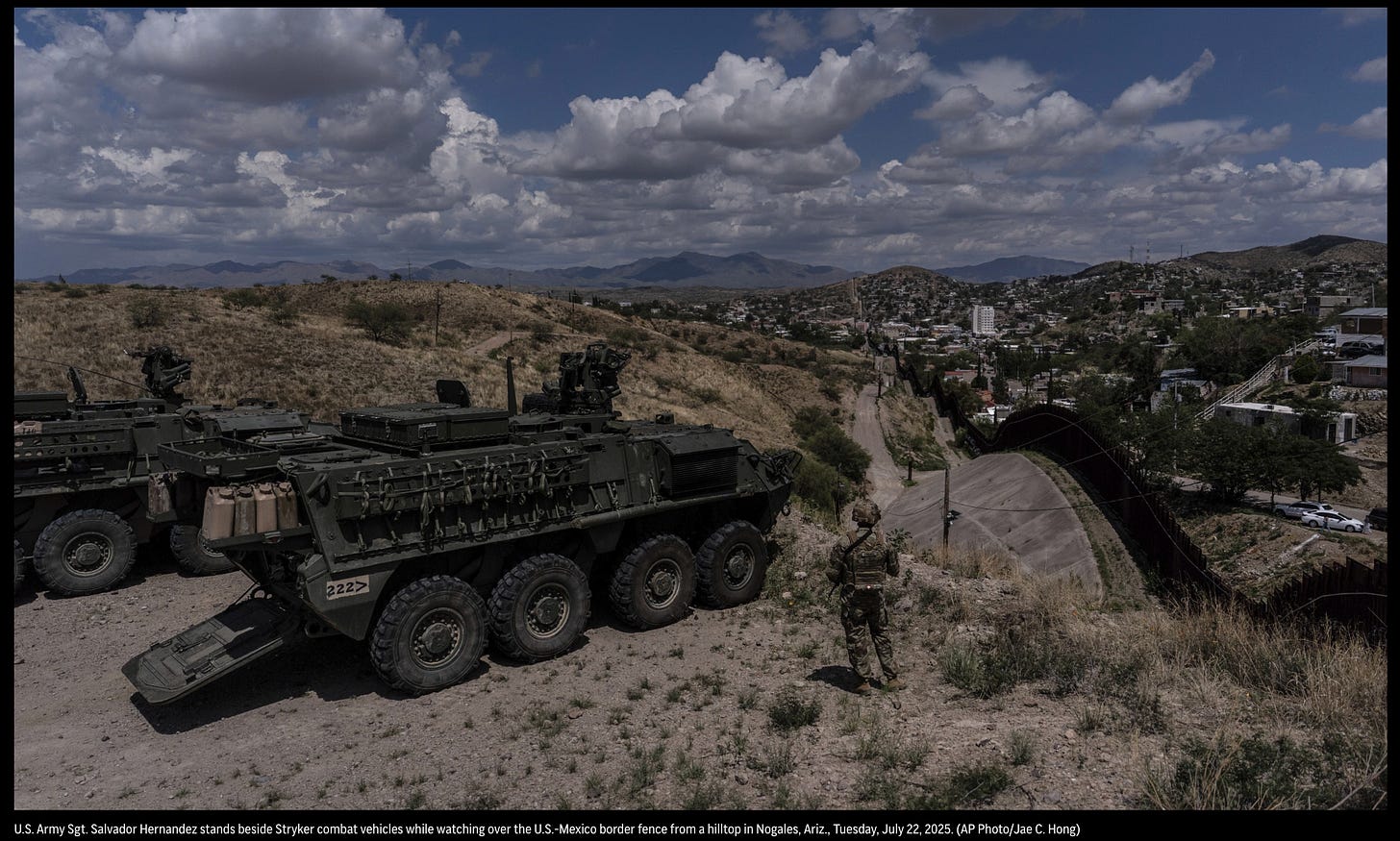
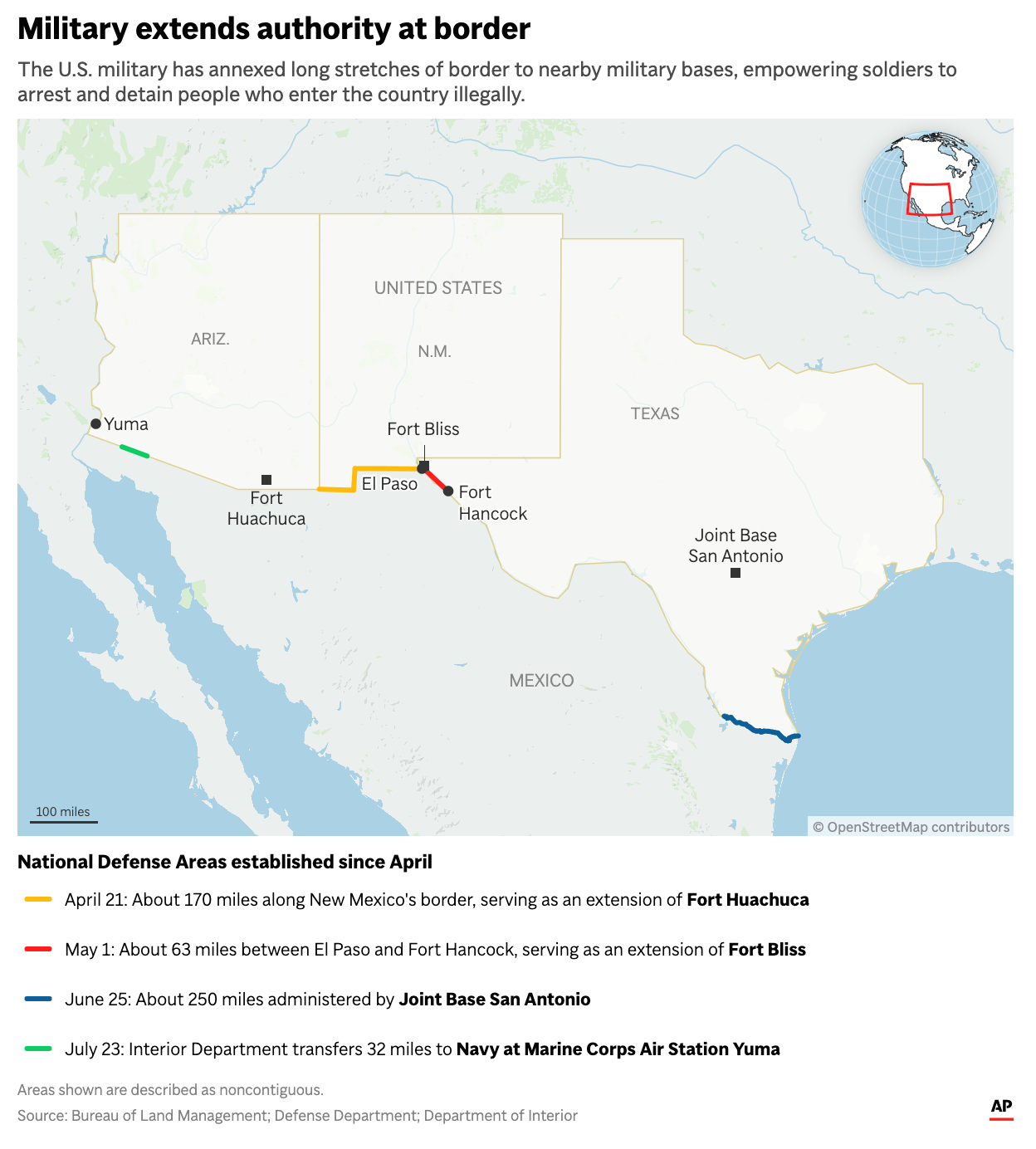
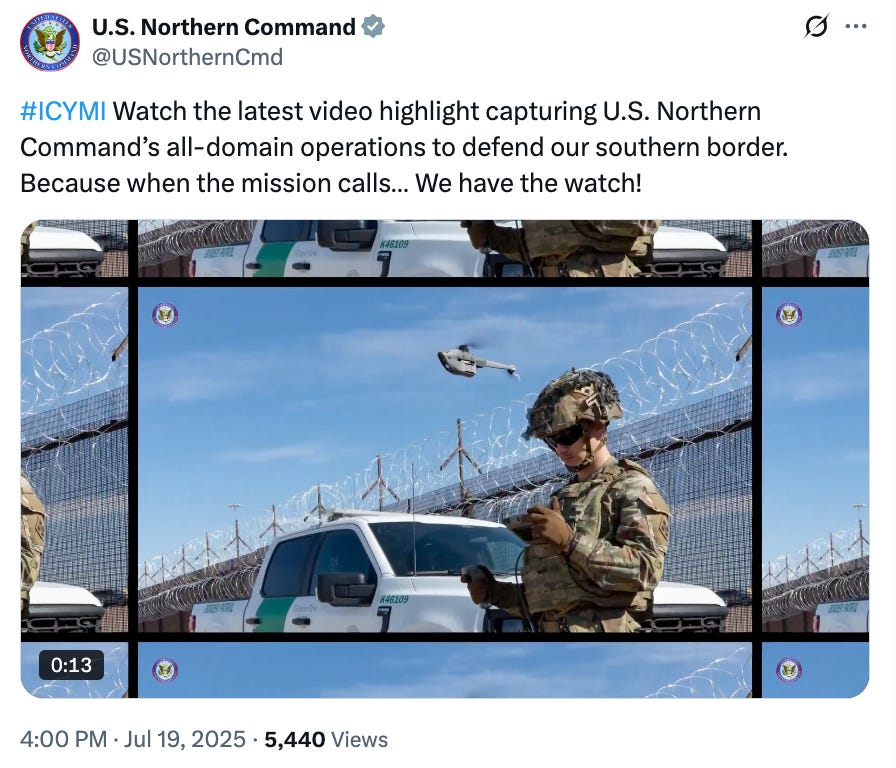

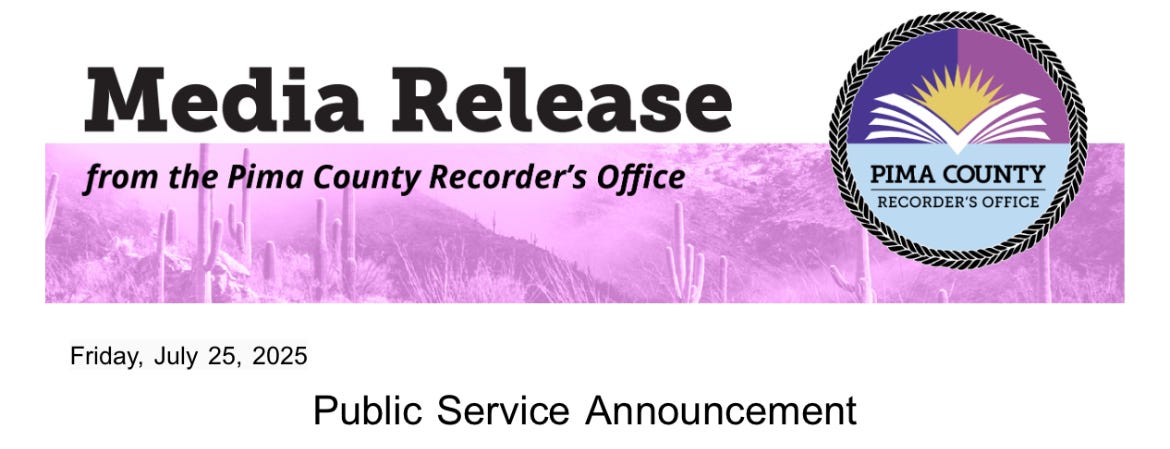


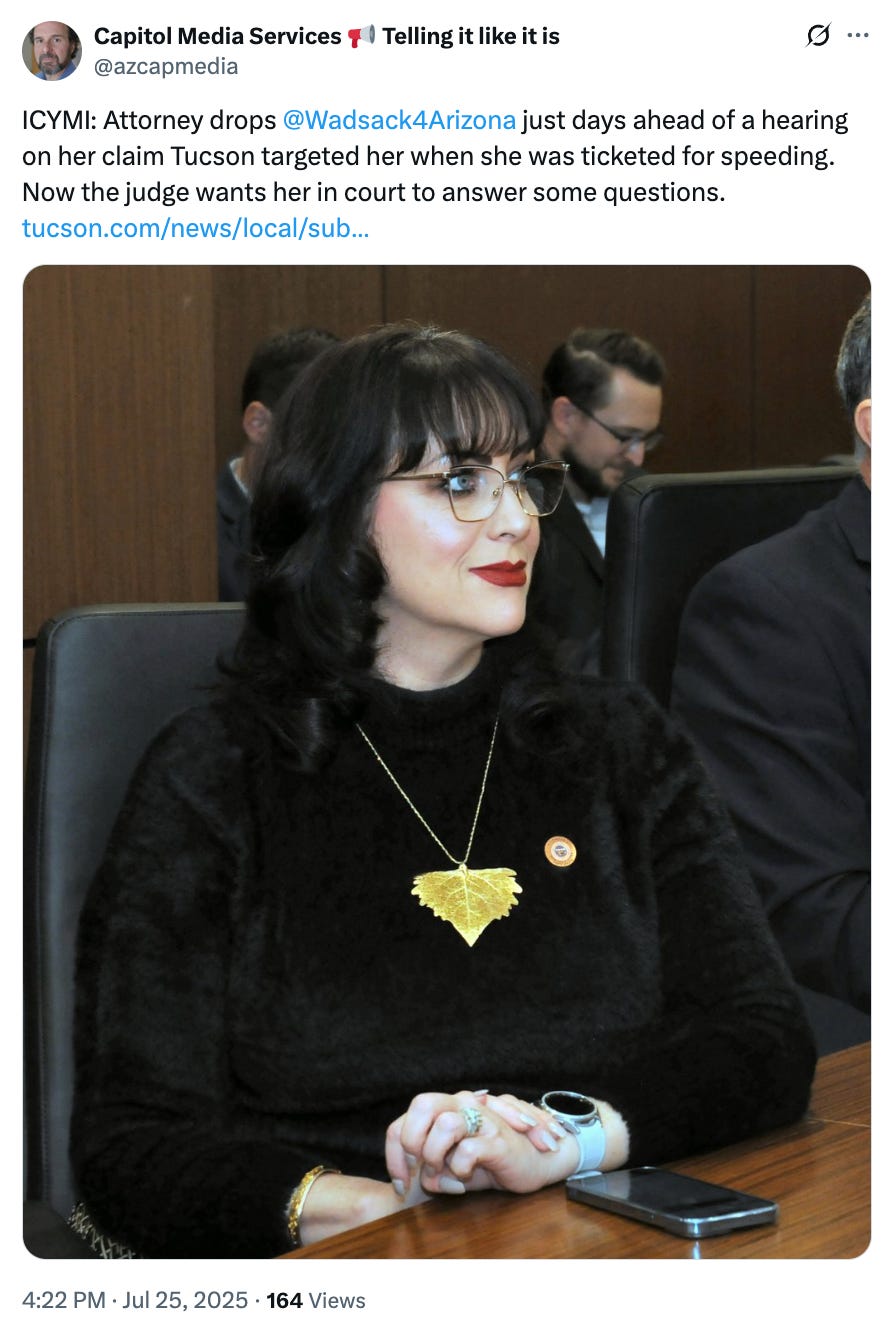

I want to comment on the behavior of Congressman Juan Ciscomani who is now on an extended vacation because the RepubliCONS in the U.S. House of Representatives are trying to cover for an Orange pedophile! Second, the worst Congressman in my 42 years living in Tucson had a mention of a new McDonalds restaurant opening in his district on his X page, but no mention of millions of Palestinians being intentionally starved to death! Maybe, during his extended vacation MAGAt Juan could hold his first town hall in Tucson ever? No way because Juan does not want to hear from his constituents about him voting to gut Medicaid and food stamps and then asking the RepubliCON senators to reverse his vote! He is a chickenshit of the highest order!!!
It's interesting to hear that so-called "Jewish community leaders" in Phoenix are criticizing Mark Kelly for endorsing Adelita Grijalva after reading lots of comments from both the morons at Three Sonorans and the scum on Reddit detailing how AIPAC loves Grijalva and vice versa, and how she's an agent of Israel.
Being 100% Jewish and having worked at the failed, corrupt Jess Schwartz Jewish Community High School in Phoenix (one my students called it "Zionist Brainwashing Academy" on his Facebook page), I think these leaders do not represent the Jewish community of Arizona any more than Benyamin Netanyahu does.
These "community leaders," like the Netanyahu regime, with their actions, are causing more antisemitism in the U.S. and worldwide than any non-Jewish person ever has. That's why most American Jews I know hate these chazers.
https://www.youtube.com/watch?v=tvTnj630eUk